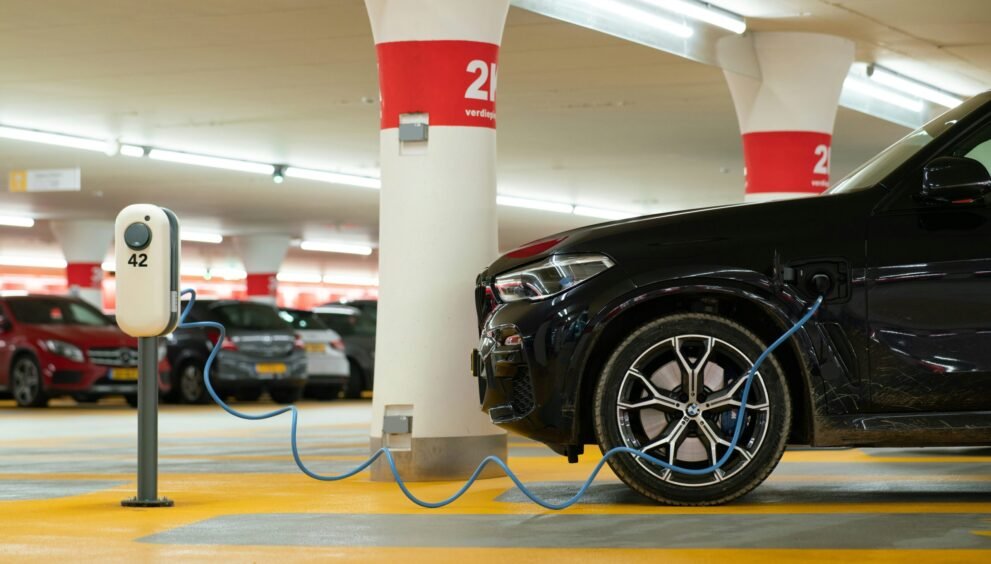What Is the Biggest Problem with Electric Vehicles? Uncover the Key Issue EV Owners Face In 2025

What Is the Biggest Problem with Electric Vehicles? As you consider switching to an electric vehicle (EV), you’re likely wondering about the biggest challenges you’ll face. The initial appeal of EVs, with their eco-friendly and cost-effective profile, can be tempered by several key issues.

You may be concerned about the limitations of EVs, including their charging infrastructure and range anxiety. Current EV owners and industry experts have cited these as significant drawbacks that could impact your driving experience.
By examining these challenges, you’ll be better equipped to decide if an EV is right for you. Understanding the primary concerns associated with electric vehicles will help you make an informed decision.
Key Takeaways
- Electric vehicles have several key challenges that impact their adoption.
- Range anxiety and charging infrastructure are significant concerns.
- Understanding these challenges is crucial for making an informed decision.
- EVs offer eco-friendly and cost-effective benefits.
- Industry experts and current owners cite several drawbacks.
What is the Biggest Problem with Electric Vehicles?
The biggest hurdle for electric vehicle adoption isn’t necessarily the cars themselves, but rather the infrastructure that supports them. As you explore the world of electric vehicles (EVs), you’ll likely encounter several challenges that can impact your overall experience.
One of the most significant drawbacks of electric vehicles is the current state of their charging infrastructure. While it’s improving, it still lags behind the widespread availability of gasoline stations.
The Charging Infrastructure Dilemma
The availability of charging stations varies significantly depending on your location. Urban areas tend to have a higher concentration of charging points, while rural areas often have fewer options. This disparity can make long-distance travel in an EV more complicated.
To better understand the charging infrastructure, let’s look at a comparison of different charging types:
| Charging Type | Charging Time | Range per Hour |
|---|---|---|
| Level 1 (120V) | 12-24 hours | 2-5 miles |
| Level 2 (240V) | 4-8 hours | 10-25 miles |
| DC Fast Charging | 30 minutes | 60-100 miles |
Range Anxiety: Perception vs. Reality

Range anxiety is a term used to describe the fear of running out of battery power while driving. While it’s a valid concern, the reality is that most modern EVs have a range that covers the average daily commute and more.
However, the perception of range anxiety can still be a significant deterrent. To alleviate this, many manufacturers provide range estimators and charging planners to help you navigate long trips.
Time Constraints: How Long Charging Really Takes
The time it takes to charge an EV can vary significantly depending on the type of charging station you’re using. While DC Fast Charging can recharge an EV to 80% in under 30 minutes, Level 1 charging can take over a day.
Understanding the different charging options and planning your charging sessions accordingly can help minimize downtime and make owning an EV more convenient.
Secondary Challenges That Impact Your EV Experience
As an EV owner, you’ll encounter various secondary challenges that can shape your overall experience with the vehicle. While electric vehicles offer numerous benefits, understanding these factors is crucial for a satisfying ownership experience.
Upfront Cost vs. Long-Term Savings
The higher upfront cost of electric vehicles compared to their gasoline-powered counterparts is a significant consideration. However, it’s often offset by long-term savings on fuel and maintenance. To better understand the economics of EV ownership, let’s examine some key factors.

- Lower operating costs due to reduced fuel expenses
- Reduced maintenance costs resulting from fewer moving parts
- Potential savings on fuel costs, which can be substantial for high-mileage drivers
Battery Lifespan and Replacement Considerations
Battery lifespan and potential replacement costs are critical factors in the overall cost of EV ownership. Most EV manufacturers provide warranties for their batteries, typically ranging from 8 to 10 years. Understanding the battery lifespan and associated costs can help you make informed decisions.

Weather Effects on Performance and Range
Weather conditions can significantly impact the performance and range of your EV. Extreme temperatures, whether hot or cold, can affect battery efficiency and overall vehicle performance. It’s essential to understand how different climates may influence your driving experience.
In cold climates, batteries may lose some efficiency, reducing the vehicle’s range. Conversely, extremely hot temperatures can also impact battery health over time. Being aware of these factors can help you plan your charging habits and driving routes accordingly.
Conclusion
As you consider joining the electric vehicle revolution, understanding the challenges of owning an electric car is crucial. The biggest problems associated with EVs, such as limited charging infrastructure and range anxiety, can significantly impact your driving experience.
Secondary challenges, including high upfront costs, battery lifespan concerns, and weather effects on performance, also play a role in shaping your overall satisfaction with your EV.
By weighing these electric vehicle drawbacks, you can make a more informed decision about whether an EV aligns with your needs and preferences. As the EV landscape continues to evolve, being aware of these challenges will empower you to navigate the advantages and disadvantages with confidence.
FAQ
What is the biggest problem with electric vehicles?
The biggest problem with electric vehicles is often cited as the charging infrastructure dilemma, including range anxiety and the time it takes to charge an EV.
How far can electric vehicles really go on a single charge?
The range of electric vehicles varies significantly depending on the model, battery size, and driving conditions. Many modern EVs can travel over 200 miles on a single charge, with some models reaching up to 500 miles or more.
Are electric vehicles more expensive than gasoline-powered cars?
Electric vehicles often have a higher upfront cost compared to their gasoline-powered counterparts, but they can offer long-term savings on fuel and maintenance.
How long does it take to charge an electric vehicle?
The time it takes to charge an EV depends on the type of charging used. Fast charging can replenish a battery to 80% in under 30 minutes, while standard charging at home can take several hours.
What are the challenges of owning an electric car?
Some of the challenges of owning an electric car include range anxiety, higher upfront costs, battery lifespan and replacement considerations, and weather effects on performance and range.
How do weather conditions affect electric vehicle performance?
Weather conditions, such as extreme temperatures, can impact the performance and range of electric vehicles. Cold temperatures, in particular, can reduce battery efficiency and overall range.
What are the limitations of electric vehicles?
Electric vehicles have several limitations, including charging infrastructure constraints, range anxiety, and higher upfront costs, although many of these limitations are being addressed as the technology continues to evolve.
Can electric vehicles be charged at home?
Yes, electric vehicles can be charged at home using a standard wall socket or a dedicated home charging station, making it convenient to keep your vehicle charged and ready to go.






















































































































































































































































































































